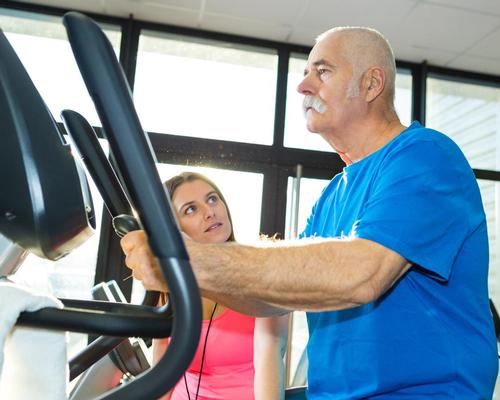 |
 |
14 Dec 2017

Vigorous exercise delays progression of Parkinson’s, study shows

By Deven Pamben

|
|


Most people who develop Parkinson’s are 60 and older

Photo: Shutterstock

|
|
High-intensity fitness sessions three times a week can slow the progress of Parkinson’s disease, new research has revealed.
While some experts believe vigorous exercise is too physically stressful for individuals with Parkinson's, scientists at Northwestern University in Illinois and University of Colorado found that high-intensity physical activity stopped the symptoms from getting worse.
The research, which was published in the journal JAMA Neurology, involved a randomised trial of 128 participants aged between 40 and 80 years old. Each was at an early stage of the disease and had not taken any medication, ensuring the results of the study were related only to the exercise.
Scientists examined the safety and effects of exercise three times a week for six months at high intensity (80 to 85 per cent of maximum heart rate) and moderate intensity (60 to 65 per cent of maximum heart rate). They compared the results to a control group who did not exercise.
After six months, those taking part were rated by clinicians on a Parkinson’s disease scale.
Participants had a score of about 20 before any activity. Those exercising at a high intensity stayed at 20 but for those taking part in only moderate activity the symptoms grew worse by 1.5 points. The group that did not exercise worsened by three points.
Three points out of a score of 20 is considered 'clinically important' to patients.
“If you have Parkinson’s disease and you want to delay the progression of your symptoms, you should exercise three times a week with your heart rate between 80 to 85 per cent maximum – it's that simple,” said co-lead author Daniel Corcos, professor of physical therapy and human movement sciences at Northwestern University Feinberg School of Medicine.
“The earlier in the disease you intervene, the more likely it is you can prevent the progression of the disease.
“We delayed the worsening of symptoms for six months – whether we can prevent progression any longer than six months will require further study.”
Parkinson’s symptoms include progressive loss of muscle control, trembling, stiffness, slowness and impaired balance. As the disease progresses, it can become difficult to walk, talk and complete simple tasks.
Corcos added: “We're stopping people from getting worse, which is significant, particularly if we catch them early in the disease.
“We gave them a proper workout – this is not mild stretching, this is high intensity. It’s part of the idea that exercise is medicine.” |

|
| back |
|
|
|
|